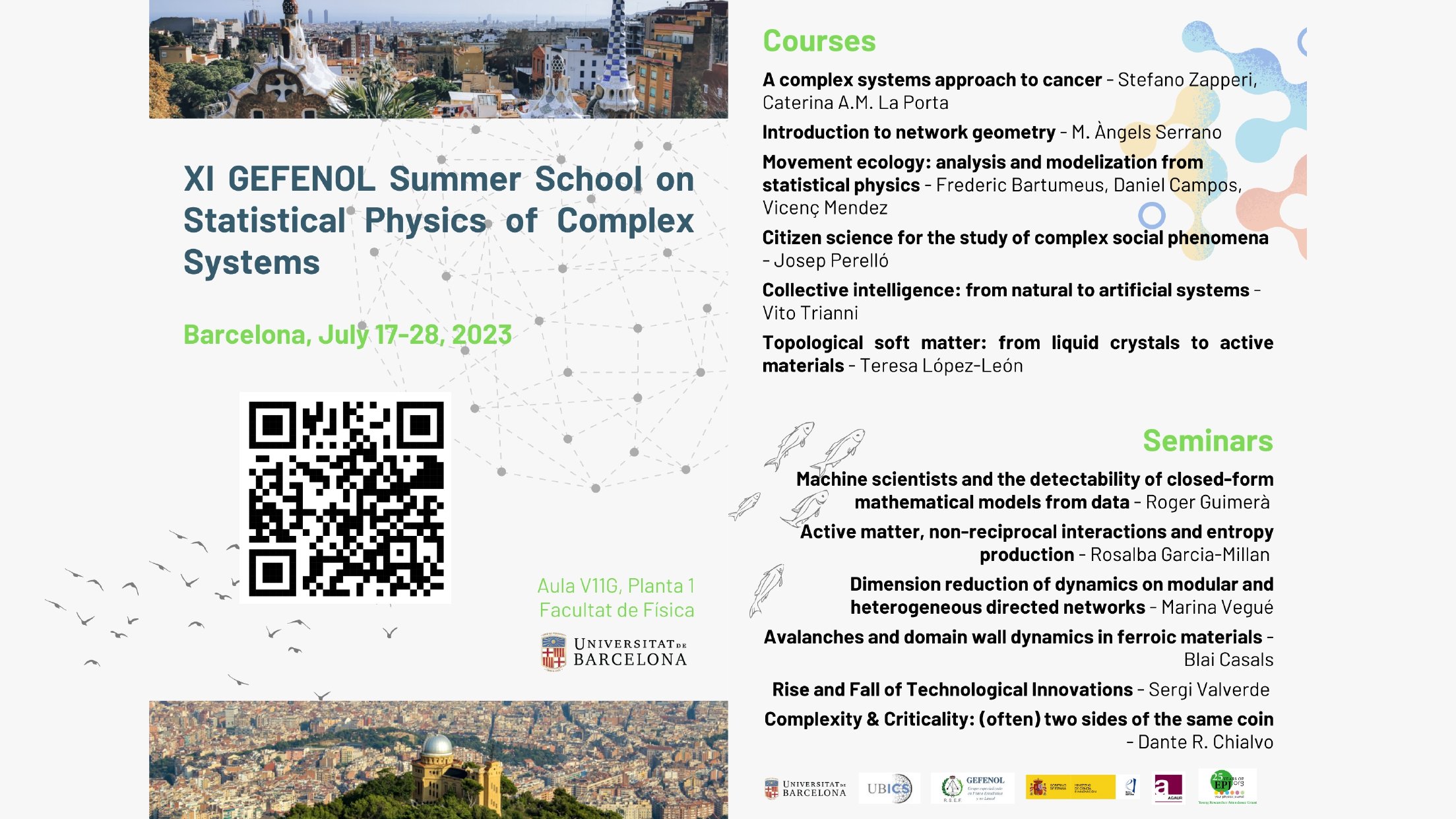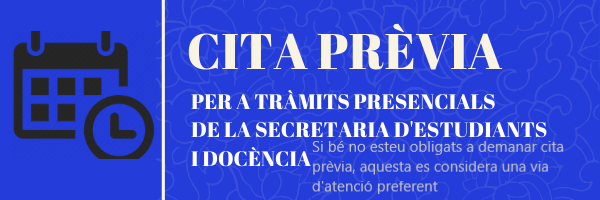Departaments
Detall
Dates:
Horari:
Organitza:
Lloc:
Afegeix-ho a l'agenda (iCal)
17th july | “Machine scientists and the detectability of closed-form mathematical models from data”
Conferenciant: Roger Guimerà (Universitat Rovira i Virgili, Tarragona).
Resum: For a few centuries, scientists have described natural phenomena by means of relatively simple mathematical models such as Newton's law of gravitation or Snell's law of refraction. Sometimes, they found these models deductively, starting from fundamental considerations; more frequently, however, they derived the models inductively from data. With increasing amounts of data available for all sorts of (natural and social) systems, one may argue that we are now in a position to inductively uncover new interpretable models for these systems. But can this process be authomatized? That is, can we design algorithms that automatically learn, from data, the closed-form mathematical models that generated them? And if so, are the true generating models always learnable? Here we will discuss how network inference approaches can help us to answer these questions. Moreover, we will show that there is a transition occurring between: (i) a learnable phase at low observation noise, in which the true model can in principle be learned from the data; and (ii) an unlearnable phase, in which the observation noise is too large for the true model to be learned from the data by any method.
19th july | “Active matter, non-reciprocal interactions and entropy production”
Conferenciant: Rosalba García Millán (U. of Cambridge / King's College, London)
Resum: Active matter typically transforms chemical energy into motion at the local, microscopic scale. Examples of active matter range from molecular motors to swimming bacteria and self-propelling colloids. In this talk, I will focus on collective active motion that emerges from non-reciprocal interactions between particles of two different types. This is a basic model of the formation and self-propulsion of active colloids based on attractive-repulsive interaction forces between two types of otherwise non-motile microspheres. I will further show how we use field theory to calculate the entropy production of this non-equilibrium system.
20th july | “Reducing the dynamics of a large interacting system”
Conferenciant: Marina Vegué Llorente (Universitat Politècnica de Catalunya, Barcelona),
Resum: Dimension reduction is a common strategy to study nonlinear dynamical systems composed by a large number of variables. The goal is to find a smaller version of the system whose time evolution is easier to predict while preserving some of the key dynamical features of the original system. Finding such a reduced representation for complex systems is, however, a difficult task. We address this problem for dynamics on weighted directed networks, with special emphasis on modular and heterogeneous networks. We propose a two-step dimension-reduction method that takes into account the properties of the adjacency matrix. First, units are partitioned into groups of similar connectivity profiles. Each group is associated to an observable that is a weighted average of the nodes’ activities within the group. Second, we derive a set of equations that must be fulfilled for these observables to properly represent the original system’s behavior, together with a method for approximately solving them. The result is a reduced adjacency matrix and an approximate system of ODEs for the observables’ evolution. We show that the reduced system can be used to predict some characteristic features of the complete dynamics for different types of connectivity structures, both synthetic and derived from real data, including neuronal, ecological, and social networks. Our formalism opens a way to a systematic comparison of the effect of various structural properties on the overall network dynamics. It can thus help to identify the main structural driving forces guiding the evolution of dynamical processes on networks.
Link to school for further information: https://school2023.gefenol.es/




